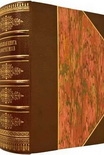From Baghdad with Love by Jay Kopelman (best feel good books txt) 📗

- Author: Jay Kopelman
Book online «From Baghdad with Love by Jay Kopelman (best feel good books txt) 📗». Author Jay Kopelman
He doesn’t have a collar or leash, so Anne has to carry him all the way back to the car. Luckily her Iraqi driver doesn’t object. Most Iraqis don’t like dogs.
But getting from the Green Zone back to the NPR compound in the Red Zone is no joyride, either; it requires a certain amount of grit and heavy-duty sedatives if available.
If you’re fortunate enough to live in the Green Zone, but unfortunate enough to have to go into the Red Zone, you travel the streets escorted either by a military convoy or, more likely, by a private security detail driving custom-built SUVs with steel-plated doors, three-inch bulletproof windows, and machine guns pointing out every available crack. Local traffic swerves out of the way for these guys, even onto the sidewalks or into oncoming traffic in the opposite lane.
Not that there are many rules of the road to obey here in the first place. Traffic lights blink sporadically and there aren’t any cops waiting to catch speeders, so drivers run through intersections and speed across sidewalks and generally avoid anything that might contain a bomb, including cars stopped for pedestrians, cars moving slowly through intersections, and cars stalled in the middle of the street.
If you’re unfortunate enough to live in the Red Zone and have to actually go somewhere within it, the safest way to travel is as discreetly as possible. Nothing showy. No American flags on the antenna, no support our troops bumper stickers. Armored sedans are to be avoided because, as William Langewiesche reported in The Atlantic Monthly, they “might get you through a short gunfight, but they can kill you too, particularly through the overpressure that results from the explosion of a rocket-propelled grenade that penetrates to the inside.” Thin-skinned sedans are the way to go, because while they won’t stop bullets, they allow “rocket grenades to pass right through.”
And here Annie is, transporting a large puppy who can’t keep still and whose face, popping up from one window to another, announces with virtual spotlights and blaring trumpets to every person standing in the streets that an American and her dirty American dog are in the car.
CHAPTER EIGHTEEN
January 2005
The Syrian Border
I don’t care that I haven’t cried since I was a kid. When I read Anne’s e-mail from Baghdad, not even Patton’s presence could keep the tears from coming.
“Just to confirm that Lava is safely with me . . .”
Am I a gutless wimp?
Maybe.
Have I just embarrassed the entire US Marine Corps?
Perhaps.
Do I care?
CHAPTER NINETEEN
February 2005
Baghdad
Anne’s days in Baghdad start early. Until 5 am, Lava snuggles up next to her in bed and snores, but at 5 am sharp the security people in the building rotate in and out, which sends Lava diving off the bed, to the door, to the window, and back to the door in a fanatic frenzy of barking.
Back in the States, Anne and her husband live with five dogs, so she understands canine instinct well, but she tells me that never ever has she met a dog, especially one as young as Lava, who bounces so wildly back and forth between innocence and sheer ferocity. She thinks maybe it’s his gene pool; there are so many stray and feral dogs in Iraq that anything could be governing his DNA. Maybe the bombs did it or maybe his early diet of MREs, but Anne guesses it has something more to do with being raised by homesick Marines.
Lava is a toy version of the well-trained, loyal-hearted, loudmouthed grunt. He sits on command. He pees outside. He obeys to the point of mechanization, but threaten the safety of his loved ones—especially at five o’clock in the morning—and nothing holds back the roo-roo-rooing.
The building, really a compound of small buildings surrounded by a high wall, sits in the Red Zone and houses the NPR crew, other reporters, an Iraqi staff, and the security personnel.
There aren’t any cinemas, no restaurants, no trivia nights at the local mosque, so the highlight of everyone’s day at the compound is to fawn over Lava’s incredible ability to sit.
“Watch this,” one of them says to the others for the sixth time that evening, then looks down at Lava and raises a hand ever, ever, ever so slightly.
“Sit.”
And the intelligent puppy looks up, wags his tail, and sits. It’s amazing. Everyone, even the Iraqi workers, oohs and aahs as if encouraging the spiritual progress of the next Dalai Lama.
Anne e-mails me with updates when she can.
“All is well. Lava is happy . . .”
“He’s incredibly affectionate. He nips but no more than our Lab puppy back home . . .”
“He sits beautifully . . .”
Before the insurgency gained popularity, journalists in Baghdad usually just congregated in the big hotels. After the initial invasion, though, after Saddam Hussein fled and the electricity went out, the reality of being invaded set in, and the big hotels became common targets. Journalists then either left the country or moved into private houses, which were less comfortable but definitely less conspicuous. If your house came under insurgent surveillance, you just moved to another house.
But after the coalition forces invaded Fallujah and casualty reports filtered through the rest of the country, hatred of Americans grew so strong that private houses no longer protected anyone. Now the safest places were compounds like this, usually former motels, with high walls, grilled doors, and, most importantly, hired security with fully loaded automatic weapons.
You didn’t go out for anything other than reporting,





Comments (0)